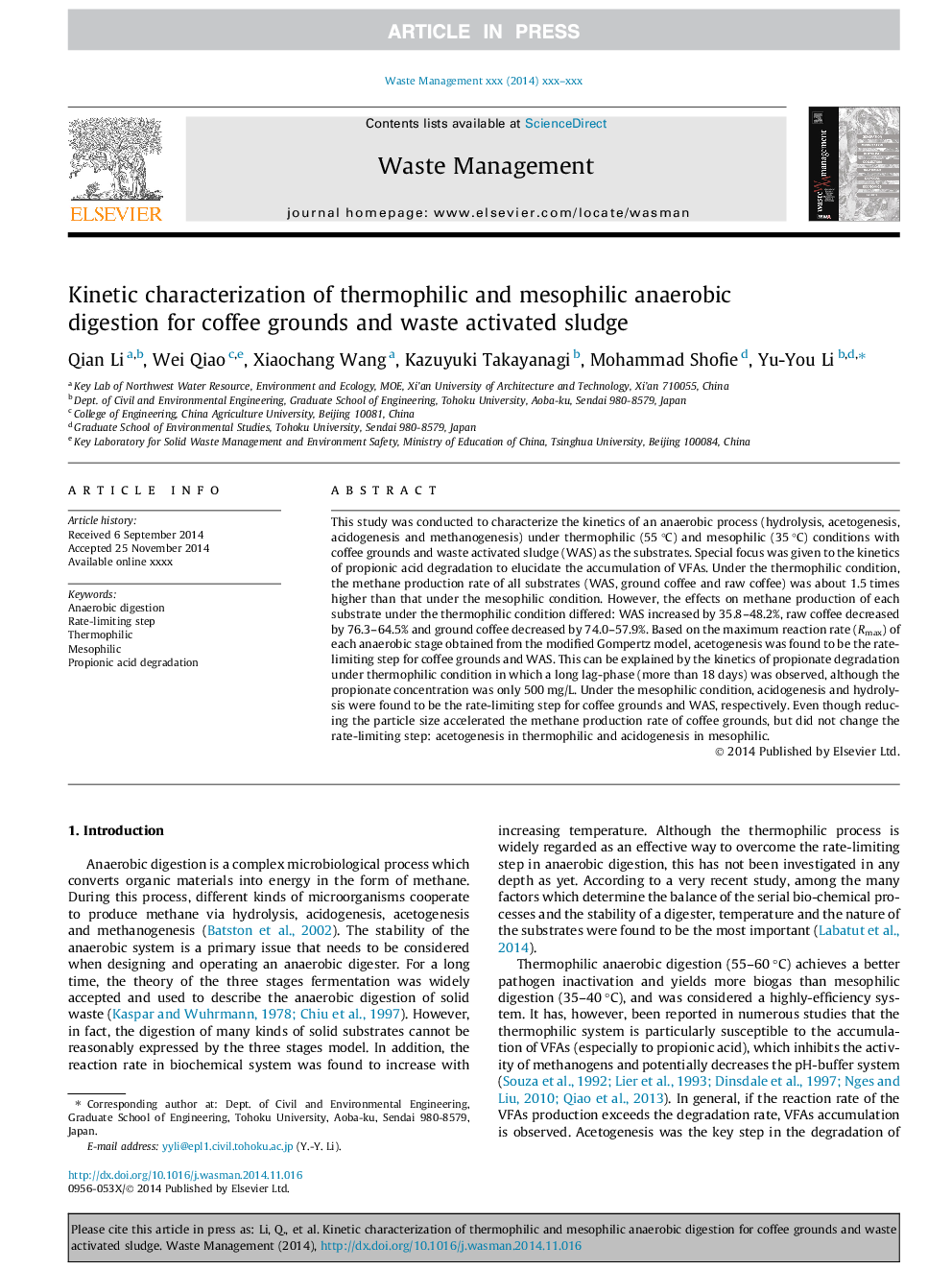| Article ID | Journal | Published Year | Pages | File Type |
|---|---|---|---|---|
| 6354938 | Waste Management | 2015 | 9 Pages |
Abstract
This study was conducted to characterize the kinetics of an anaerobic process (hydrolysis, acetogenesis, acidogenesis and methanogenesis) under thermophilic (55 °C) and mesophilic (35 °C) conditions with coffee grounds and waste activated sludge (WAS) as the substrates. Special focus was given to the kinetics of propionic acid degradation to elucidate the accumulation of VFAs. Under the thermophilic condition, the methane production rate of all substrates (WAS, ground coffee and raw coffee) was about 1.5 times higher than that under the mesophilic condition. However, the effects on methane production of each substrate under the thermophilic condition differed: WAS increased by 35.8-48.2%, raw coffee decreased by 76.3-64.5% and ground coffee decreased by 74.0-57.9%. Based on the maximum reaction rate (Rmax) of each anaerobic stage obtained from the modified Gompertz model, acetogenesis was found to be the rate-limiting step for coffee grounds and WAS. This can be explained by the kinetics of propionate degradation under thermophilic condition in which a long lag-phase (more than 18 days) was observed, although the propionate concentration was only 500 mg/L. Under the mesophilic condition, acidogenesis and hydrolysis were found to be the rate-limiting step for coffee grounds and WAS, respectively. Even though reducing the particle size accelerated the methane production rate of coffee grounds, but did not change the rate-limiting step: acetogenesis in thermophilic and acidogenesis in mesophilic.
Related Topics
Physical Sciences and Engineering
Earth and Planetary Sciences
Geotechnical Engineering and Engineering Geology
Authors
Qian Li, Wei Qiao, Xiaochang Wang, Kazuyuki Takayanagi, Mohammad Shofie, Yu-You Li,
